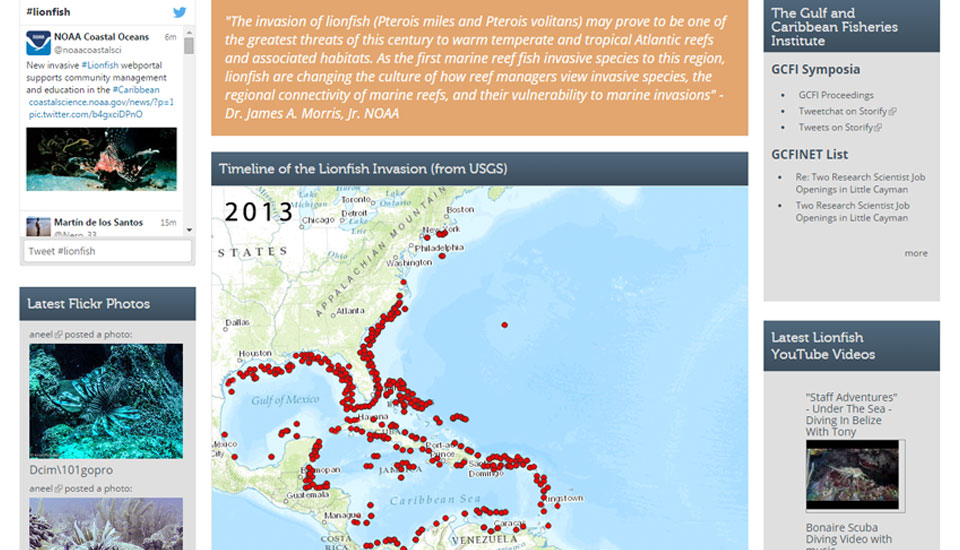NOAA, Gulf and Caribbean Fisheries Institute Launch New Lionfish Web Portal
A new tool to fight aggressive invasive fish in the Atlantic Ocean.

Lionfish Live
One of the new site’s special features is an interactive front page that includes live Twitter (#lionfish), Flickr, YouTube, and Google news feeds, image and video contests, a lionfish distribution map, and a lionfish discussion forum designed to promote discussion and inquiry.
The Gulf and Caribbean Fisheries Institute (GCFI) and NOAA have partnered to launch a new web portal to provide managers, researchers, and the public with the latest information on the lionfish invasion in the Atlantic.
Introduced into the southeast Atlantic through the U.S. aquarium trade in the 1980s lionfish have been spotted as far north as southern New England and are firmly established in a range from North Carolina to South America, including the Gulf of Mexico. Lionfish, which are considered an aggressive threat to native fish populations throughout their range, have recently expanded throughout most of the Caribbean in a time span of less than five years.
“Lionfish may prove to be one of the greatest threats of this century to warm temperate and tropical Atlantic reefs,” explained NOAA ecologist James Morris, Ph.D. “As the first marine reef fish invasive species to this region, lionfish are changing the culture of how reef managers view invasive species, the regional connectivity of marine reefs, and their vulnerability to marine invasions. With the lionfish web portal, coastal managers, scientists, and the public can work together to manage and understand the lionfish and its impacts on Atlantic reefs.”
The Invasive Lionfish Web Portal provides vetted and accurate information for coastal managers, educators and the public on the lionfish invasion and its impacts by providing training videos, fact sheets, examples of management plans, and guidelines for monitoring. The authors of the web portal include NOAA scientists and policy experts, non-profit environmental groups, academic scientists, and coastal managers from the Southeast U.S., Caribbean, and Gulf of Mexico who together bring decades of experience fighting the lionfish invasion.
This project was funded by the U.S. Department of State’s Office of Conservation and Water. Collaborating partners include NOAA’sNational Centers for Coastal Ocean Science (NCCOS), GCFI, REEF, the International Coral Reef Initiative, and Oregon State University.